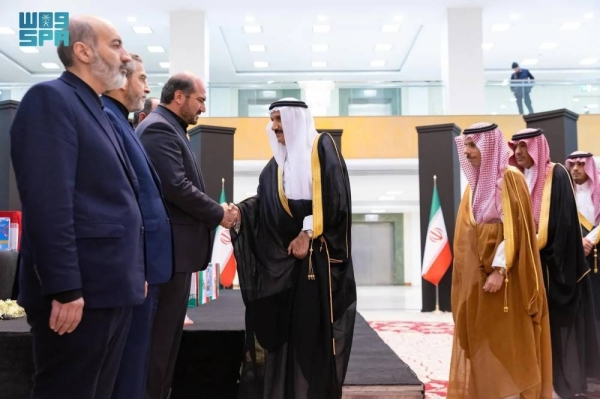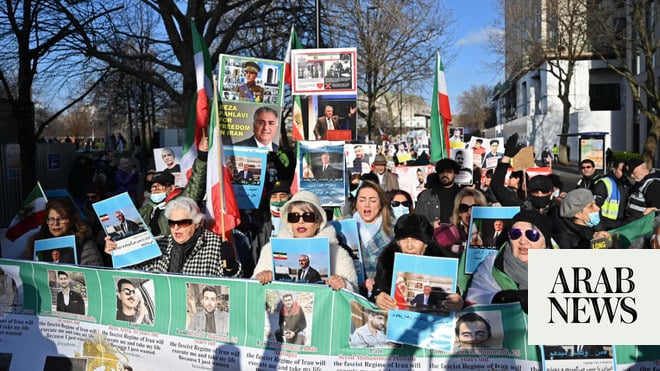
The Iranian regime continues to defy the international community. Ever since that community set out to punish Iran for its illicit nuclear activities, and its support of global terrorism and regional warmongering, Tehran seems to have been able to find ways to sidestep the sanctions regime through money laundering, smuggling and hostage taking.
Supreme Leader Ayatollah Ali Khamenei, who enjoys the final say in Iranian foreign policy, believes his government must find other paths to move forward in the face of international sanctions. During his new year address in March 2021, three months before installing Ebrahim Raisi as the new president, Khamenei gave instructions on how to steer the regime away from a vulnerability to sanctions.
“Our emphatic advice to the officials of our country, whether those who are now in office or those who will come later, is not to tie our economy to the lifting of sanctions,” he said. “Presume that the sanctions will remain. Plan the country’s economy based on the continuation of sanctions.”
It is important to point out that oil and gas have historically been the backbone of Iran’s gross domestic product. The regime will find it extremely difficult to fund the Islamic Revolutionary Guard Corps’ military adventurism, and its militias and terror groups in the region, without the profits from the export of oil and gas. That is most likely why the Iranian regime has been attempting to sell oil through smuggling.
In fact, by resorting to propaganda the regime is not even attempting to hide its violations of sanctions and how it is cheating, as it has used official and unofficial channels to send the message that it will not bend under Western sanctions.
For instance, the regime’s minister of oil, Javad Owji, claimed on April 6 that more than $16 billion of new oil contracts have been signed since Raisi became president. On April 3, Iran’s official news agency, IRNA, boasted: “According to the estimates of oil market consultants and analysts, despite the sanctions Iran was able to double its exports in 2021 since the beginning of the year.”
Currently, Iran’s leaders appear to be pushing for more concessions from the West. Nevertheless, some of them believe that the regime ought to revive the 2015 Joint Comprehensive Plan of Action, commonly known as the Iran nuclear deal, as soon as possible and at all costs. This is due to the additional benefits and flow of funds that a renewed nuclear deal would bring to the regime and its beneficiaries.
It is time to learn from the Iranian people’s resistance against their regime and to stand tall instead of lying low.
Dr. Majid Rafizadeh
As Ali Akbar Salehi, former nuclear negotiator and former head of the regime’s Atomic Energy Organization, told state-controlled news outlet Shafaqna: “Currently there is an exceptional opportunity for Tehran if the JCPOA is revived. It is an opportunity for a significant export of Iranian oil, for which there is demand now.”
But there are also some in Tehran who believe it is time to push the West for maximum concessions.
So far, these Iranian hopes have turned out to be short-lived. The clerical regime openly insisted that Washington should remove the Revolutionary Guards from its list of Foreign Terrorist Organizations, which sparked heated debate in the US and the Middle East. In addition, Moscow threw a wrench in the works of the nuclear negotiations in Vienna when it asked Washington for its deals with Tehran to be sanctions-free.
In 2018, the US, under President Donald Trump, decided that the 2015 nuclear deal was incapable of curbing Tehran’s regional and ballistic missiles ambitions and withdrew from the agreement. As a consequence, many sanctions that had been lifted under the deal were reimposed. The regime’s illicit activities throughout the Middle East were not immune to the renewed austerity this created in Tehran.
The regime stepped up its nuclear program and increased its hostility toward the US military and its allies in the region. Tehran and its mouthpieces in the West continue to claim the regime has been successfully circumventing sanctions, for example by restoring oil sales to pre-sanctions levels.
No matter how much of this is true, the Iranian regime’s smuggling networks and a clandestine finance system have indeed provided a vital lifeline that has given the regime the perception it can take advantage of the current situation and ridicule the West’s determination for retribution.
The underlying problem is that the longer the regime’s cheating and violations go unpunished, the more it believes it can continue to spoon-feed the IRGC and its regional proxies enough to keep the Iranian people suppressed and its neighbors living in dread.
If the world is truly to change the attitude of the Iranian regime, it should not be appeasing it and lifting the sanctions against Tehran, the IRGC, and its militias and terror groups across the region.
Waving sanctions, offering political concessions and security guarantees will only convey a message of remorse and weakness to the Iranian regime. It is time to learn from the Iranian people’s resistance and to stand tall instead of lying low.
• Dr. Majid Rafizadeh is a Harvard-educated Iranian-American political scientist.
Twitter: @Dr_Rafizadeh












